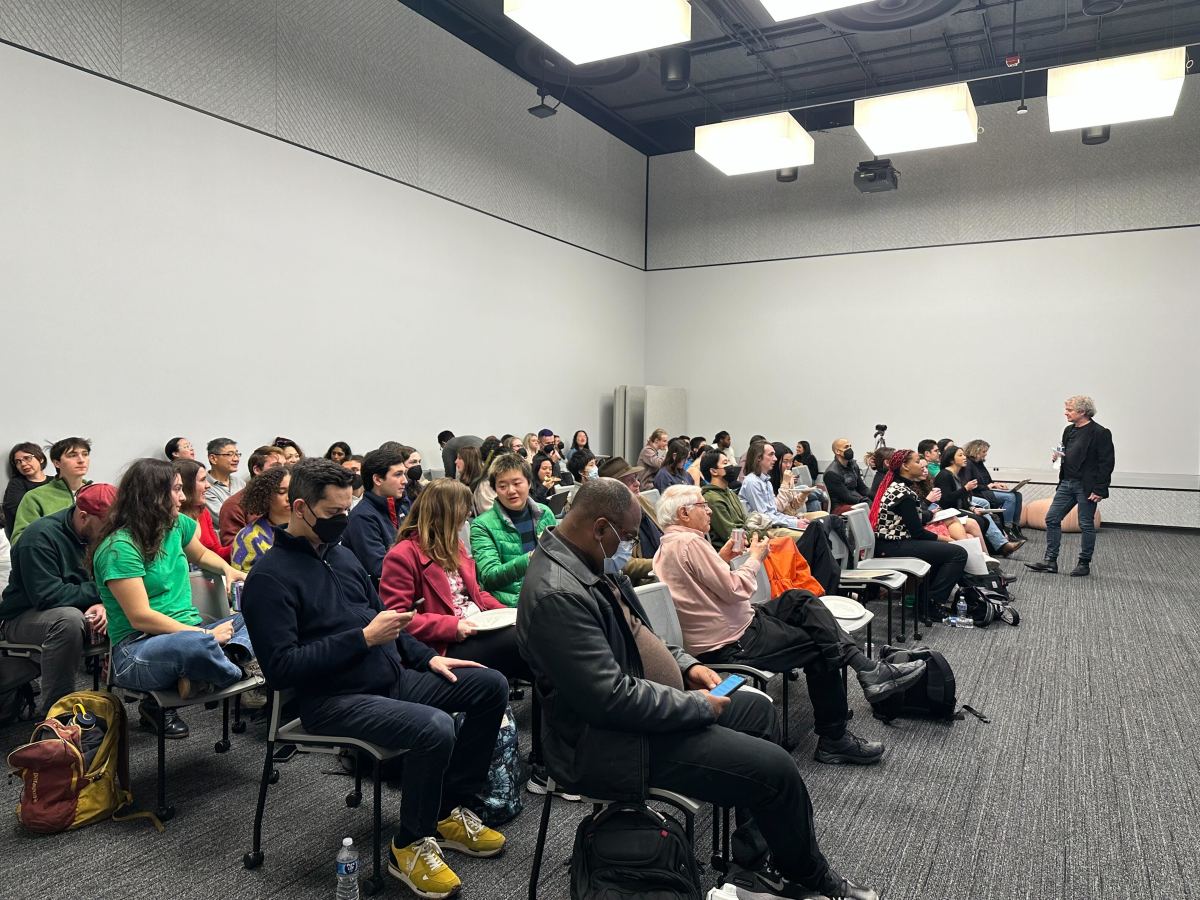On Thursday afternoon, University of California Los Angeles (UCLA) professor and author Philippe Bourgois Ph.D. ’85 discussed the importance of mental health support for incarcerated individuals during a presentation at McClatchy Hall on his latest ethnographic project. The professor has worked on evaluating a new outreach program for the Los Angeles County Department of Mental Health.
Bourgois was invited to speak as part of the Urban Studies Program’s 16th Annual Model Scholar Lecture. Craigen Armstrong, who is incarcerated and co-founded the Mental Health Assistance Program, joined Bourgois virtually from the Los Angeles County Jail as they discussed mental health, incarceration and wellness.
At the event, Bourgois read some of his on-sight field notes from when he was working in the LA County Jail. He recounted many detailed, emotional stories of his time working with people who were incarcerated and experiencing mental illness.
“Perhaps the single, saddest person we meet is a very frail, young man with a microcephalic head and a very sweet, exuberant smile,” Bourgois said. “He calls out eagerly through his cell door to the psychiatrist shadowing. He proudly announces that he has not banged his thin, fragile looking head against the wall for a whole week now and declares, ‘I feel much better.’”
Bourgois discussed how he grappled with such experiences.
“When I can’t make sense of the heads and tails of what I’m seeing, and I’m grasping for the footing, I try to step back and see the big structural political economy picture,” he said.

Armstrong shared his experiences with the Mental Health Assistance Program at the event. The program at the LA County Jail educates and trains inmates on topics of mental illness and how to appropriately treat patients in an incarcerated environment. Stanford seniors in the urban studies program described Armstrong’s program as a “national and international model for mental health care.”
The Office of Diversion and Reentry reported that the early stages of the program saw “a 600% decrease in self harm incidents … [where self-harm is] defined as self cutting.”
In his presentation, Bourgois said that there are racial, mental health and wealth inequalities within the incarceration system. He said that “the blame needs to be placed on the structural system, but also its people administering this,” in reference to psychiatrists and hospitals turning down the incarcerated mentally ill.
“One of the things that we saw that we can improve […] was the disconnect between the psychiatrists, clinicians and the patient,” Armstrong said.
Bourgois cited Armstrong’s initiative, as one that is “developing a more formal rehabilitative treatment and teaching socialization programs” for incarcerated people experiencing mental illness.
Armstrong explained that he created the Mental Health Assistance Program because he believes that incarceration, which often is a political environment, can be stressful and traumatizing.
“In the 12 years I was on death row, I have seen individuals talking to themselves, banging on doors, banging on the cells […] and things of that nature.”
Armstrong said that these are the people he desired to help. “That kind of initiated the desire to want to learn what I was around and what I have been experiencing in prison.”
Understanding and addressing the fear and isolation that exists in carceral spaces is an important component of the program, according to Armstrong.
“Even if they’re shouting at you or coming at you with their hands to fight with you — it’s just because they don’t understand what they’re doing, they are scared,” Armstrong said.
